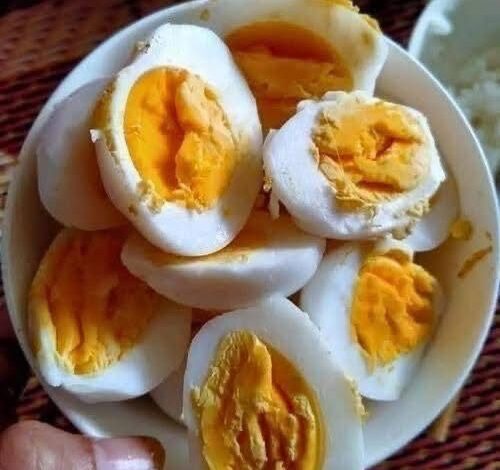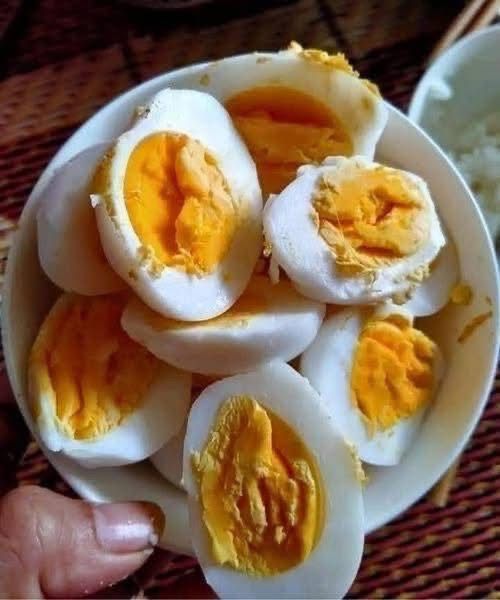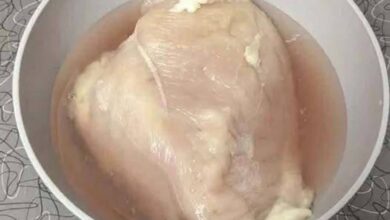Perfect Boiled Eggs (Hard-Boiled & Soft-Boiled)


Introduction
Boiled eggs — whether soft and creamy or firm and fully set — are one of the world’s simplest and most beloved foods. From breakfast tables to lunchboxes, they’ve nourished people for centuries. Despite their simplicity, mastering the perfect boiled egg requires the right timing, water temperature, and a little patience.
Ingredients
- 4 large eggs (fresh, room temperature preferred)
- Water (enough to cover eggs by 1 inch / 2.5 cm)
- Ice cubes or cold water (for cooling the eggs after boiling)
- Pinch of salt (optional — helps prevent cracking)
Instructions
Step 1: Prepare the Eggs
Take the eggs out of the refrigerator about 10–15 minutes before boiling. Letting them come to room temperature helps prevent cracking.
Step 2: Boil the Water
Fill a saucepan with enough water to cover the eggs by at least 1 inch. Add a pinch of salt if desired. Bring the water to a rolling boil over medium-high heat.
Step 3: Gently Add the Eggs
Once the water is boiling, reduce the heat slightly so it’s not too violent. Carefully lower the eggs into the pot using a spoon.
Step 4: Time the Cooking
Choose your desired doneness and follow the times below:
- Soft-Boiled Eggs (runny yolk): Boil for 5–6 minutes
- Medium-Boiled Eggs (slightly creamy yolk): Boil for 7–8 minutes
- Hard-Boiled Eggs (fully set yolk): Boil for 9–12 minutes
Step 5: Cool the Eggs
Once the timer is up, immediately transfer the eggs into a bowl filled with ice water. Let them sit for 5–10 minutes. This stops the cooking process and makes them easier to peel.
Step 6: Peel and Enjoy
Gently tap each egg on a hard surface and peel under running cold water. Serve plain, with salt and pepper, or add them to salads, sandwiches, or ramen bowls.
Methods and Tips
- For easier peeling, use eggs that are at least a few days old.
- Start with boiling water for more consistent results.
- For softer eggs, reduce boiling time by 1–2 minutes.
- Store boiled eggs in the refrigerator for up to one week.
History
Boiled eggs have been part of human diets since ancient times. The earliest records date back to Ancient Egypt and Rome, where eggs symbolized life and renewal. In Europe during the Middle Ages, eggs were often dyed and given as gifts during Easter — a tradition that evolved into the Easter egg custom we know today. Across Asia, unique boiled egg variations appeared, such as tea eggs in China and spiced eggs in India.
Nutritional Information (per egg)
- Calories: 78
- Protein: 6 g
- Fat: 5 g
- Carbohydrates: 0.6 g
- Vitamin B12, D, and Iron: High
Benefits
- High in protein – supports muscle growth and repair.
- Rich in vitamins and minerals – particularly B12, selenium, and choline for brain health.
- Supports weight loss – eggs help you feel full longer.
- Boosts energy levels – natural, nutrient-dense food.
- Promotes healthy skin and hair – thanks to biotin and good fats.
Conclusion
Boiled eggs prove that sometimes the simplest foods are the most powerful. With just water, heat, and patience, you can create a snack that’s nourishing, versatile, and deeply satisfying. Whether soft and creamy for breakfast or firm and sliced into a salad, boiled eggs are a true kitchen essential — timeless, healthy, and delicious.



